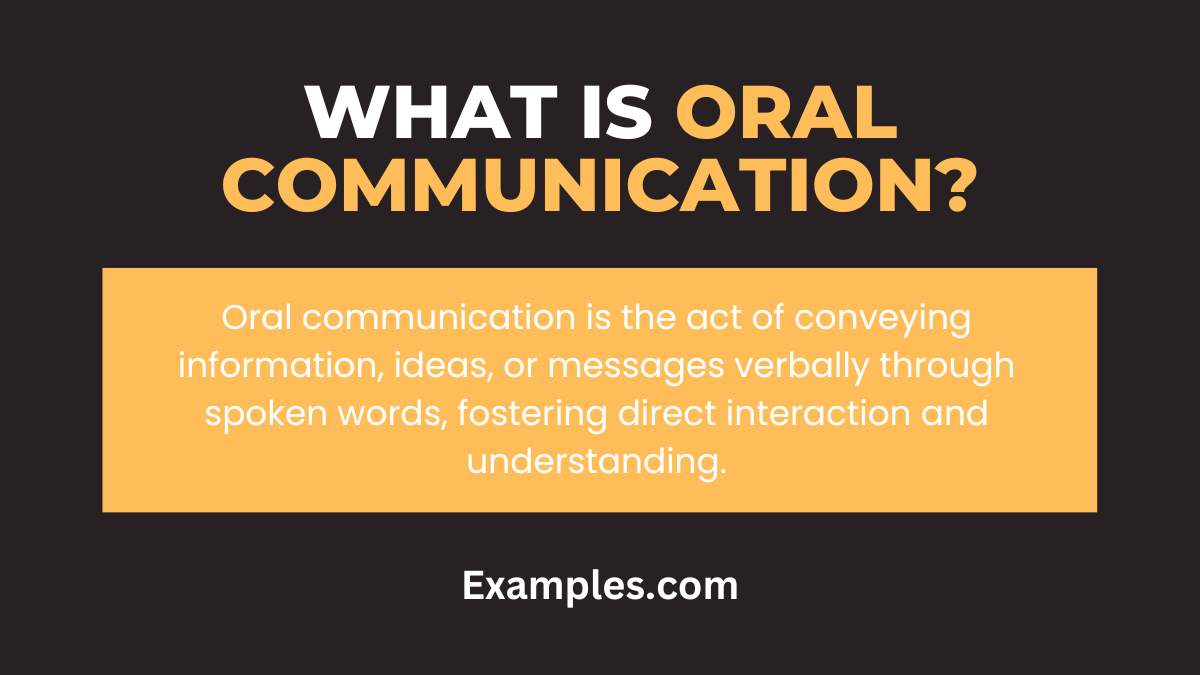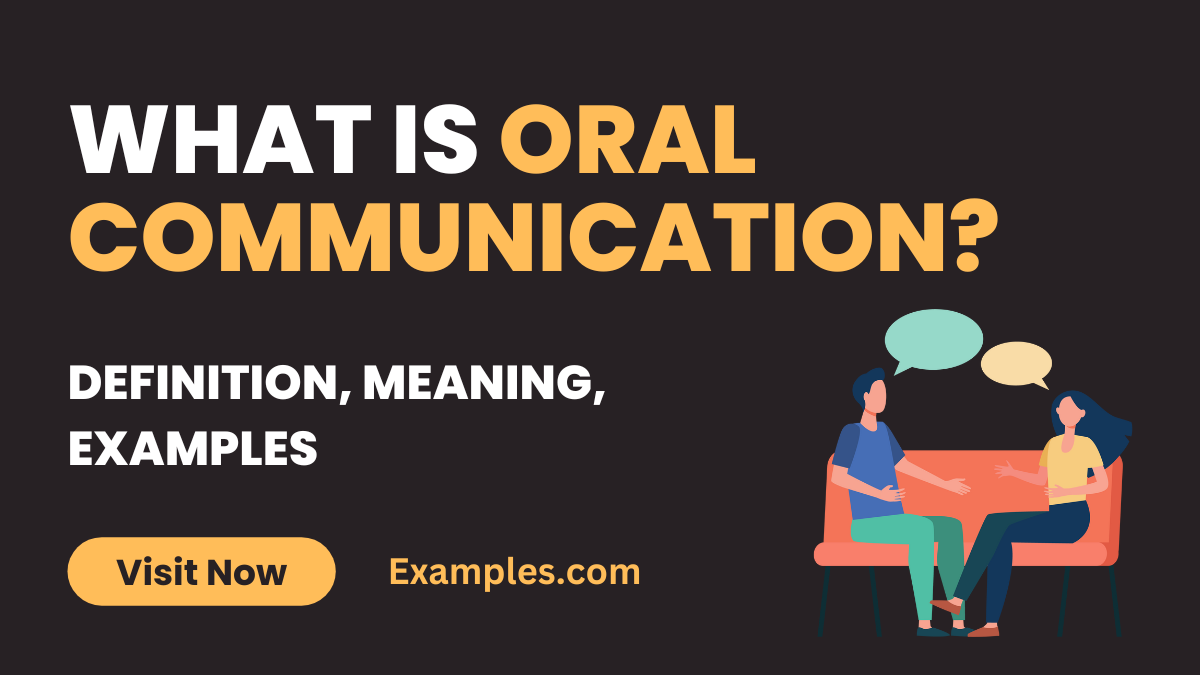What is Oral Communication?
Oral communication is a fundamental aspect of human interaction, serving as a cornerstone in fields like mass communication and everyday personal exchanges. This form of communication involves expressing ideas and emotions through spoken words, crucial for effective storytelling, persuasive speeches, and clear conversations. Our guide delves into its definition, illustrating with real-world examples, and provides insights on enhancing this vital skill. Whether in mass communication or intimate discussions, mastering oral communication opens doors to deeper understanding and influence.
What is Oral Communication? – Definition

Oral communication refers to the process of verbally transmitting information and ideas from one individual or group to another. It encompasses a wide range of interactions, from casual conversations to formal presentations and speeches. Key aspects of oral communication include clarity of speech, effective use of tone and volume, active listening, and the ability to adapt the message to the audience. This form of communication is essential in everyday personal interactions, educational settings, and professional environments, playing a crucial role in sharing knowledge, expressing thoughts, and building relationships.
Importance of Oral Communication
Importance Oral communication is vital as it facilitates immediate feedback, enables quick decision-making, and fosters personal connections. It plays a crucial role in expressing ideas clearly and persuasively, enhancing both personal and professional interactions.
Advantages and Disadvantages of Oral Communication
Advantages and Disadvantages of oral communication include real-time feedback and risk of miscommunication, lack of permanence compared to written records, and potential misunderstandings due to differences in speech and interpretation.
Ways to Improve Oral Communication Skills
Ways in Improving oral communication skills involves practicing clear articulation, active listening, and effective non-verbal cues. Engaging in public speaking, seeking feedback, and adapting communication to different audiences enhance these skills significantly.
Most Important Oral Communication Skills
The most important oral communication skills include clear articulation, active listening, empathy, confidence in speaking, and the ability to adapt messages to different audiences. These skills are crucial for effective and impactful verbal interactions.
- Know your audience in Oral Communication
- Speak confidently in Oral Communication
- Your body language in Oral Communication
- Be concise in Oral Communication
- Feedback in Oral Communication
- Think before you speak in Oral Communication
- Speak clearly in Oral Communication
- Tone in Oral Communication
- Avoid clichés in Oral Communication
- Clarity in Oral Communication
- Confidence in Oral Communication
- Get rid of conversation fillers in Oral Communication
- Make eye contact in Oral Communication
- Open mind in Oral Communication
- Public speaking in Oral Communication
- Questioning in Oral Communication
- Storytelling in Oral Communication
- Tailoring messages to different audiences
- Understanding in Oral Communication
Elements of Oral Communication
The elements of oral communication include the speaker, message, channel, listener, feedback, environment, and noise. These components work together to ensure successful verbal interaction, where the speaker conveys a message through a channel, the listener receives and interprets it, feedback occurs, and external factors influence the process.
Styles of Oral Communication
Styles of oral communication vary and include assertive, aggressive, passive-aggressive, and passive styles. Assertive communication is clear and respectful, aggressive is forceful and often disrespectful, passive-aggressive combines passive and aggressive elements indirectly, and passive style involves avoiding expressing one’s own opinions or feelings. Each style impacts the effectiveness of communication.
- Aggressive Oral Communication
- Assertive Oral Communication
- Passive communication in Oral Communication
- Public communication in Oral Communication
- Active listening in Oral Communication
- Interpersonal oral communication
- Intrapersonal oral communication
- Manipulative Oral Communication
- Oral Communication in small groups
Functions of Oral Communication
Oral communication serves multiple functions: it facilitates the sharing of information, aids in decision-making, helps resolve conflicts, fosters emotional expression, and strengthens relationships. It’s integral in clarifying misunderstandings and enhancing understanding among individuals.
Oral Communication in College
In college, oral communication is crucial for participating in discussions, presenting research, and collaborating with peers. It develops students’ ability to articulate ideas clearly and confidently, essential for academic success and future career opportunities.
Oral Communication in the Workplace
In the workplace, oral communication is key for effective teamwork, meetings, and leadership. It enables clear articulation of ideas, instructions, and feedback, essential for smooth operations and professional growth.
Oral Communication in Business
Oral communication in business involves negotiations, client interactions, and team management. Effective oral communication skills are vital for pitching ideas, building client relationships, and ensuring clear internal communication.
Oral Communication for Teachers
For teachers, oral communication is about delivering lessons effectively, engaging students, and providing feedback. It’s essential for creating a dynamic and interactive learning environment and catering to diverse student needs.
Oral Communication for Students
Oral communication for students is fundamental for class participation, group projects, and developing social skills. It enhances their ability to express thoughts clearly and interact confidently with teachers and peers.
Types of Oral Communication
Types of oral communication include formal speeches, informal conversations, group discussions, and public speaking. Each type serves different purposes and requires distinct skills for effective delivery and reception.
Oral Communication at Home
At home, oral communication strengthens family bonds, enables sharing of feelings, and assists in conflict resolution. It’s crucial for maintaining healthy relationships and ensuring mutual understanding among family members.
Oral communication is a pivotal skill in various aspects of life, from personal interactions to professional settings. It not only involves speaking clearly but also actively listening and understanding others. Enhancing oral communication skills can lead to better relationships, effective teamwork, and successful negotiations. Tips for oral communication skills are essential for anyone looking to improve their ability to express and connect.



